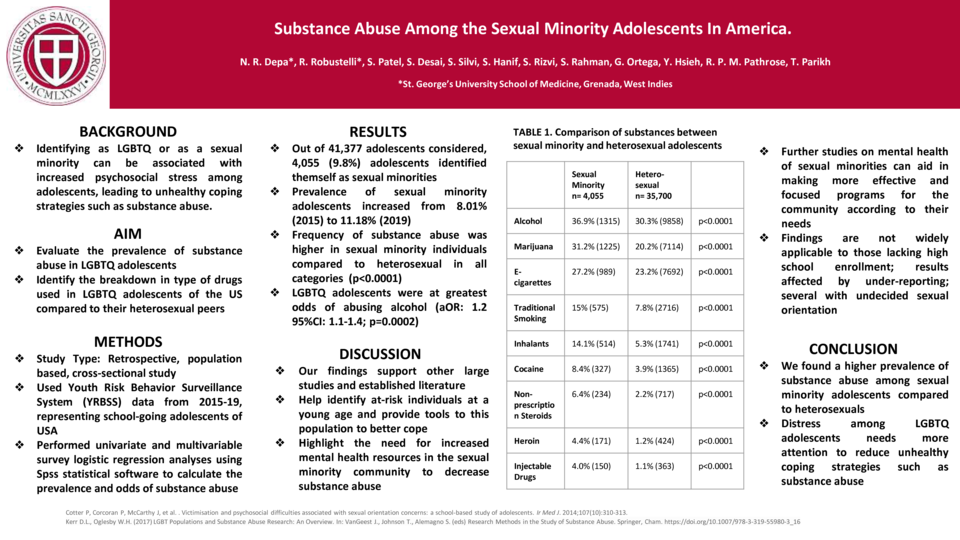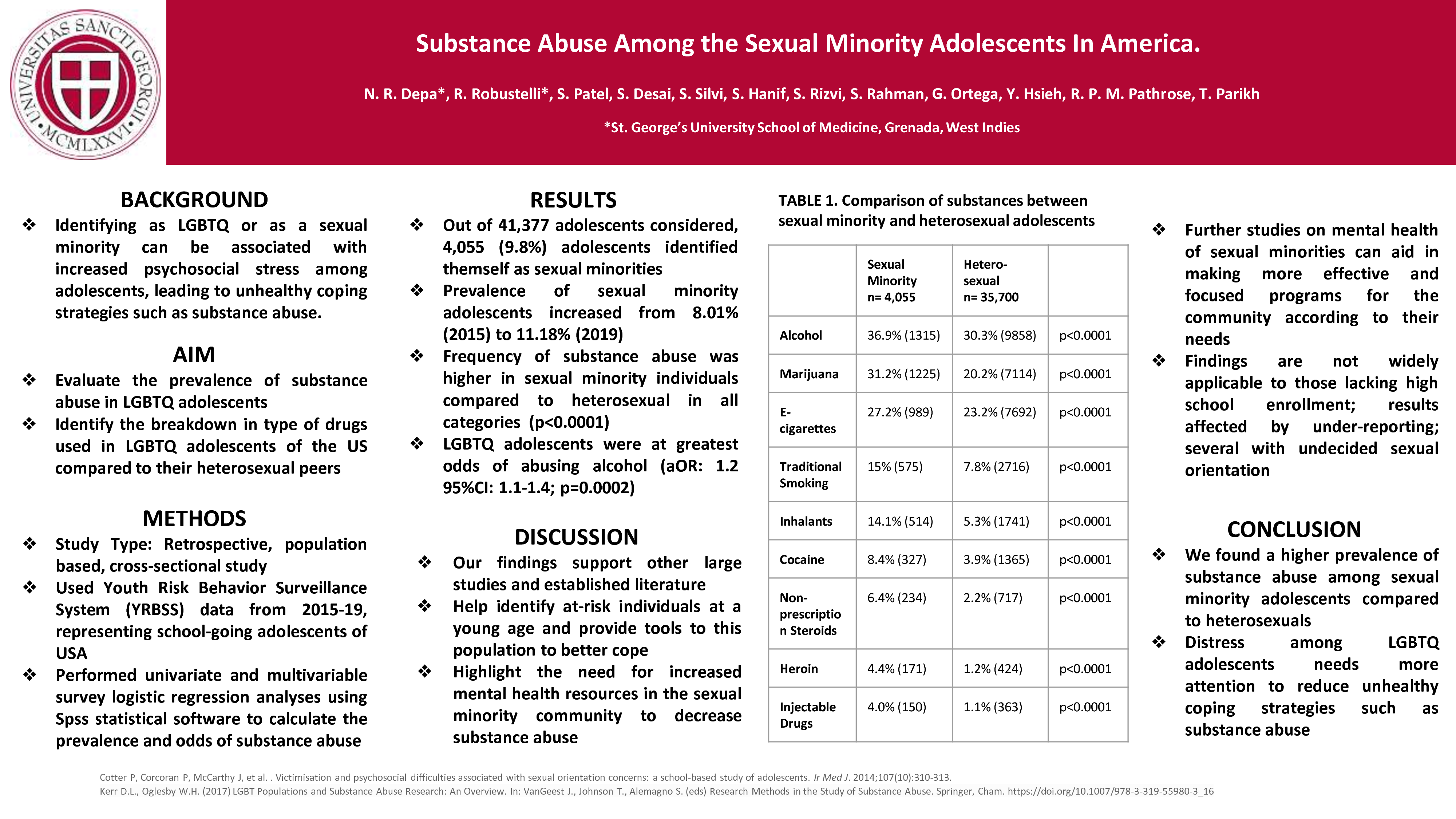Abstract
Background:
Identifying as LGBTQ can be associated with increased psychosocial stress among adolescents, leading to unhealthy coping strategies such as substance abuse.
Hypothesis:
We aimed to evaluate the prevalence of substance abuse in LGBTQ adolescents of the US compared to their heterosexual peers.
Methods:
We conducted a cross-sectional observational study using the Youth Risk Behavior Surveillance System data from 2015-19, representing school-going adolescents of the US. YRBSS defines sexual minority/LGBTQ as gay, lesbian, bisexual, or unsure. Univariate and multivariable survey logistic regression analyses were performed to identify the prevalence and odds of substance abuse among sexual minorities compared to heterosexual adolescents.
Results:
41,377 adolescents were included in our study. Among various substances, sexual minorities had higher prevalence of alcohol (36.9% vs. 30.3%), marijuana (31.2% vs. 20.2%), e- cigarette (27.2% vs. 23.2%), traditional cigarette (15% vs. 7.8%), inhalants (14.1% vs. 5.3%), cocaine (8.4% vs. 3.9%), steroids (6.4% vs. 2.2%), and heroin (4.4% vs. 1.2%) abuse compared to heterosexuals (p<0.0001 for all substances). LGBTQ adolescents also had higher prevalence of intravenous drug abuse (4.0 vs. 1.1; p<0.0001) compared to heterosexuals. In regression analysis, LGBTQ adolescents were at higher odds of abusing alcohol (aOR: 1.2 95%CI: 1.1-1.4; p=0.0002) and e-cigarettes (aOR: 1.4 95%CI: 1.2-1.6; p<0.0001) compared to heterosexuals.
Conclusion:
We found a higher prevalence of substance abuse among sexual minority adolescents compared to heterosexuals. Thus, distress among LGBTQ adolescents needs more attention to reduce unhealthy coping strategies such as substance abuse.
Funding Source:
No funding was required to conduct our study.






